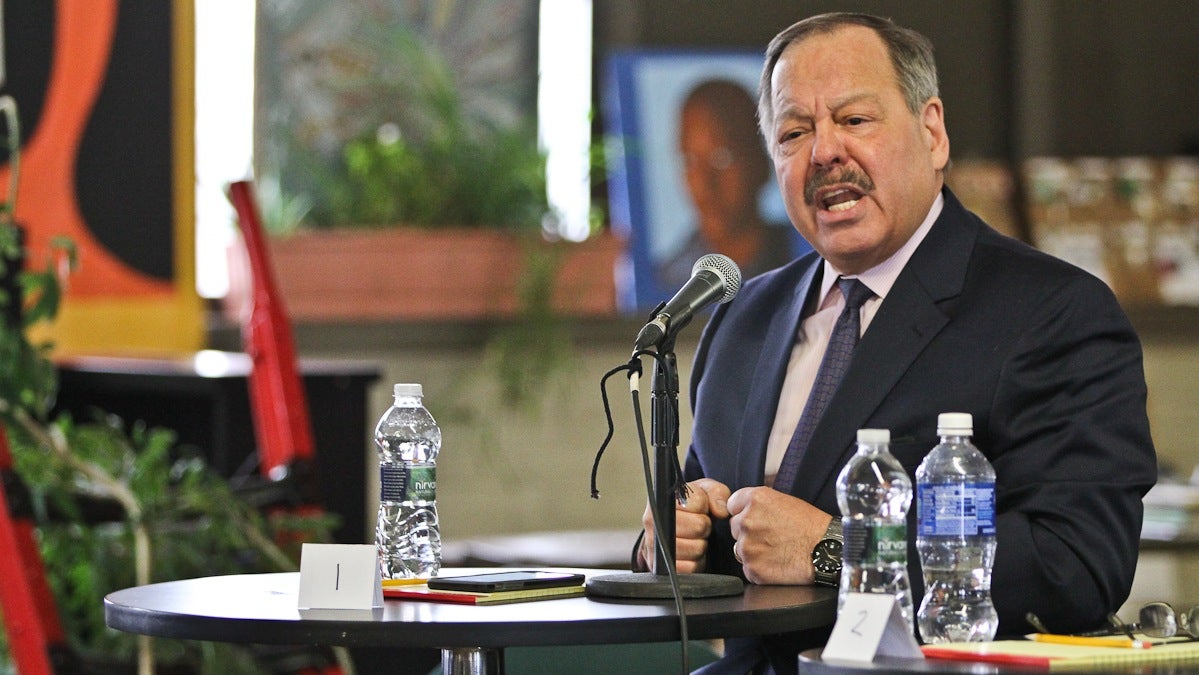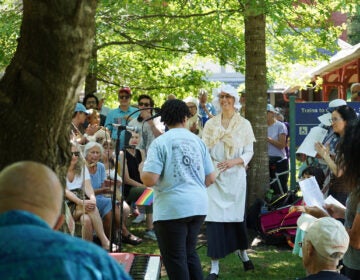For Nelson Diaz, it’s all about schools
Listen
Shown here at a mayoral forum in Parkside, candidate Nelson Diaz cited the state of education in the city as a driving force to enter the race. (Kimberly Paynter/WHYY)
During an interview for Tuesday’s NewsWorks Tonight, former Philadelphia Common Pleas Court Judge Nelson Diaz said one issue drove him to enter the mayor’s race: Schools.
“I was watching a football game and I realized I’ve got to get into this debate about the school system,” Diaz recently told WHYY’s Dave Davies. “Because the school system is so bad and they’re hurting our kids [and] that it hurt me, I felt that if I wanted to do something about it, I had to become the mayor of this city to change the [School Reform Commission].”
Diaz is critical of the role that charter schools have played over their nearly two decades in the city.
“The real reason for charters [was] to be an incubator of what works,” he said. “Once you had an incubator of what works, then you could adapt that into the regular school system.
“They haven’t adapted any of the good things that have worked in some of the school systems, so it hasn’t been used as an incubator. It’s been used as an alternative to the public education of the kids that are left behind.”
Diaz noted that other than reforming the district’s oversight, funding remains key.
“We have to have a full funding process throughout the state,” maintained Diaz, adding that he’s willing to file a federal lawsuit to ensure fair state funding for education. “One of the issues is that almost 100 percent of the kids happen to be minorities: African-American and Latinos in the public school system.
“Some of the charters have … sort of abandoned the rest of the public education process. We have to be able to educate everyone. Everyone deserves a good education, and just by siphoning out what they consider to be the prime kids and leaving everybody else behind, we’re going to have to pay later for the problems that will be created as a result of not having kids with an education.”
Diaz also said that he’d seek funding for universal pre-Kindergarten education.
“The schools that work have kids from 3 to 8 where they learn 50 percent of what they need to know,” he said, “and then it gets easier as they go through the process.”
Click the link above to hear Davies’ interview with Diaz.
WHYY is your source for fact-based, in-depth journalism and information. As a nonprofit organization, we rely on financial support from readers like you. Please give today.




